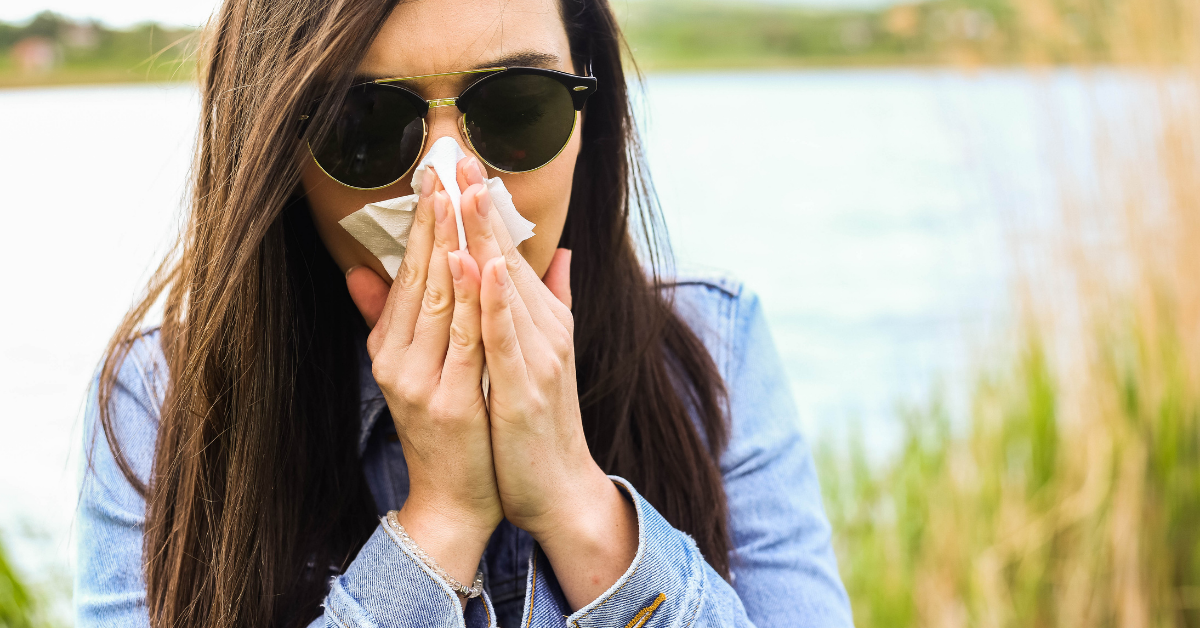
Whether you call it seasonal allergies, hay fever, or allergic rhinitis, one thing no one will ever call it is fun. Especially if you’re one of the 8 million adults who suffer from it. With Charlotte consistently ranking in the top 50 cities that are the worst for allergies, there’s a good chance that allergy symptoms are something you’ve faced as well.
What are seasonal allergies, why do they occur and what can you do about them? We’ve turned to Tryon Medical Partners’ Dr. Ryan Shelton for answers. Dr. Shelton and Tryon’s internal medicine physicians often work with patients to create allergy treatment plans that work for their unique situation and symptoms.
What are seasonal allergies?
“Allergies occur when your immune system views something in the environment as foreign, and histamine is released into your bloodstream,” Dr. Shelton said. “This causes the symptoms we associate with allergies. Here in Charlotte, ragweed is the usual fall culprit.”
One single ragweed plant can equate to one billion pollen grains, with ragweed affecting 23 million Americans. Ragweed typically begins blooming in August and lasts until the first frost, but in temperate climates like Charlotte, this may mean that fall allergies last for several months.
“In addition to ragweed, people can also react to mold outside from leaves on the ground,” Dr. Shelton said.
If you find yourself with allergy symptoms, it’s best to regularly check the allergy forecast, which can be found on local TV or radio or with a quick Google search (the National Allergy Bureau is a good one). There are also apps that can be downloaded to quickly serve this purpose.
How do I know if it’s allergies?
While symptoms vary from person to person, typical seasonal allergy complaints include sneezing, congestion, runny nose, watery, itchy eyes, scratchy throat and headaches. While seasonal allergies are sometimes referred to as hay fever, fever is not typically a symptom.
What can I do to help limit allergens?
Here are some tips for reducing your exposure to outside allergens:
- Pollen is highest right after dawn and between the hours of 10 a.m. to 3 p.m. On days with high pollen counts, consider spending more time inside. Rain helps wash away pollen, so counts are lower after rainfall.
- Shower and wash your hair to remove any pollen. The same is true for regularly changing your sheets, or at least your pillowcase, more often.
- Keep windows closed to prevent pollen from entering your home.
I’ve tried to avoid allergens but I’m still suffering. Now what?
“You shouldn’t have to suffer every year from allergies,” Dr. Shelton said. “The most important thing is try and stay ahead of it and be proactive. Saline sprays are available to provide you with moisture, but I recommend regularly rinsing out your sinuses. This helps to actually remove allergens and mucus from your nasal passageways. You can use a nasal irrigation device, like a neti pot, or something like the product Sinus Rinse, which also comes with a salt packet.”
With any nasal irrigation, be sure and use bottled water that’s labeled as distilled or sterile. If using tap water, first boil it for several minutes and then let it cool to lukewarm. It’s also important to remember to wash the product after use with the same distilled, sterile or boiled water, and dry the inside with a paper towel or lie open to dry. Follow the product directions for the most effective cleanse.
Steroid nasal sprays are also available over-the-counter, which are anti-inflammatories for your nasal passages and sinuses. In addition, there are several antihistamine allergy tablets to choose from.
“I would start with the nasal rinses first, before moving on to the steroid nose sprays and allergy medicine,” Dr. Shelton said. “Try to do this once a day and see if your symptoms improve.”
If you have any questions regarding your fall allergies, don’t hesitate to reach out to your primary care physician for help creating a customized plan. But the most important thing to remember, shared Dr. Shelton, is that you shouldn’t have to suffer from seasonal allergies.
“It’s about finding what works best for you in controlling the symptoms.”

